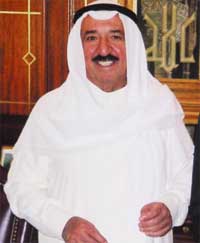 Amid growing skepticism here and in several Arab capitals over the prospects of the US-sponsored Middle East conference, the Palestinian Authority is considering asking Washington to postpone it because the Palestinians are not ready to strike a deal on "fundamental issues," senior PA officials here told The Jerusalem Post over the weekend.
Amid growing skepticism here and in several Arab capitals over the prospects of the US-sponsored Middle East conference, the Palestinian Authority is considering asking Washington to postpone it because the Palestinians are not ready to strike a deal on "fundamental issues," senior PA officials here told The Jerusalem Post over the weekend. Those issues include the status of Jerusalem, the future borders of a Palestinian state and the problem of the Palestinian refugees. The Palestinians, they added, are also "disturbed" by the fact that several Arab countries have hinted that they would stay away from the conference, which is slated for November. In addition, they warned, the conference is likely to aggravate the power struggle between Fatah and Hamas, which has come out strongly against it.
PA Chairman Mahmoud Abbas, who visited Jeddah and Amman last week, apparently failed to persuade the Saudis and Jordanians to take part in the conference. The Egyptians are also reported to have expressed reservations about the planned conference, warning that the lack of preparations for it would turn it into a mere photo opportunity. "Saudi Arabia, Egypt and Jordan have made it clear that they see no point in attending the conference because of its unclear agenda," one PA official said. "The Palestinians would like to see as many Arab countries at the conference as possible. We are going there to discuss fundamental issues that are of interest not only to the Palestinians, but the majority of Arabs and Muslims."
Saudi Foreign Minister Saud al-Faisal said after meeting with Abbas that his country would probably skip the conference called by US President George W. Bush if it doesn't tackle substantive issues such as the status of Jerusalem and Palestinian refugees. "The kingdom sees no benefit in any peace meeting or conference if it is not comprehensive and if it doesn't tackle major issues," Faisal said. "If the conference doesn't provide these things, then the kingdom's participation is doubtful."
He said the Bush administration has failed to provide either an agenda for the meeting, a list of participants, or a timeline for both sides to meet their commitments, raising fears that "we will enter into never-ending negotiations, something Arab countries don't want."
Jordan's King Abdullah said after meeting with Abbas that "issues pertaining to final status must top the agenda of the conference - foremost among them is the establishment of an independent Palestinian state."
Over the weekend, Abbas phoned a number of Arab leaders, only to hear from them that they too had reservations about the conference. They included: Syrian President Bashar al-Assad, Tunisian President Zine al-Abidin, the emir of Qatar, Hamad bin Khalifeh al-Thani, and the emir of Kuwait, Sheikh Sabah al-Ahmed al-Sabah. "We don't want to repeat the mistake of the failed Camp David summit [in 2000], when the late president Yasser Arafat was left alone to face heavy pressure from the Israelis and Americans," the PA official explained. "If the Arabs are not going, then we're also not going."
Asked if Abbas was planning to ask US Secretary of State Condoleezza Rice, who is scheduled to visit the region this week, to delay the conference, the official said, "We will stress the importance of preparing well for the conference so as to avoid failure. Of course we would like to see the conference postponed until we reach a full agreement with Israel on all the fundamental issues, but we will first wait to see what Rice has to offer us."
Abbas met in Ramallah on Saturday with US Consul-General in Jerusalem Jacob Walles, briefing him on the results of his tour. The two also discussed the planned conference and ways of making it succeed, sources close to Abbas said.
Another senior PA official said Abbas was convinced that the time was not ripe for a conference. "Until now, the Americans have not told us whether this is going to be an Israeli-Palestinian summit or a Middle East peace conference," he said. "We don't know what the agenda is and there is no indication as to who will participate in the meeting, when and if it takes place. What bothers us is that there are too many questions that are still waiting to be answered."
An Israeli official expressed surprise at the notion that the Palestinians may be considering asking Washington to postpone the November conference. "This is contrary to what Israel has been hearing from the Palestinians," the official said, "and Mahmoud Abbas, at last week's meeting with Prime Minister Olmert, reiterated his commitment to contributing to the success of the conference."
Jerusalem believes that the aim of the November gathering is not to resolve all the contentious issues, but to give impetus to the peace process as a whole. Israel has no expectation that all the main issues will be settled. "This is not a deadline meeting, not an ultimatum meeting," the official explained, "and therefore there is no possibility of postponing it."
Israeli officials believe that Rice may issue formal invitations to the parties to attend the November conference during her talks in the region this week.
On a related subject, the possibility of Israel freeing Palestinian prisoners to coincide with the Ramadan holy month will not be brought before Sunday's cabinet meeting, as was planned. An official explained that more preparation was needed before a concrete proposal could be put to ministers for approval. However, the cabinet is expected to vote on the issue in the coming weeks, before the end of Ramadan.

 Kuwait's new emir, Sheikh
Kuwait's new emir, Sheikh